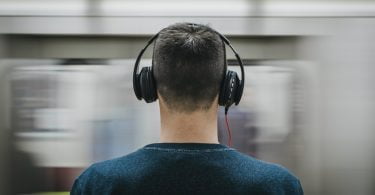The World Health Organisation estimates that around 121 million people
The World Health Organisation estimates that around 121 million people worldwide struggle with some form of depression. This statistic is made all the more worrying when coupled with the fact that less than 25% of sufferers have access to adequate treatment. Though there is no single cause for depression past investigations into the nature of the condition identified a number of contributing factors with everything from genetics to abuse being listed as potential triggers. However recent studies have singled out a new enemy in the battle against clinical depression. That enemy is none other than Mark Zuckerberg.
Whole new world
Ever since they were first introduced social networking sites have brought about a cultural metamorphosis, completely revolutionising the way we communicate with each other and adding a new dimension to modern life. Millions of people now do a large portion of their socialising whilst sat in front of a computer screen. However despite the innumerable perks of social media websites like Facebook an investigation published by the Public Library of Science, conducted by Philippe Verduyn of Leuven University in Belgium and Ethan Kross of the University of Michigan has raised concerns for the effect our rapidly growing online presence is having on our mental health. The study suggests that the more time you spend engaging with your Facebook account the more likely you are to experience feelings of low self-worth and general dissatisfaction with life.
Look at me
One of the main reasons cited for this is the fact that how we present ourselves online is usually distinctly separate from how we truly are. Facebook offers people more than just the opportunity to dip in and out of the lives of their peers its greatest (and perhaps least utilised) selling point is that it allows people complete and unimpeded control of their image. Thousands of companies use Facebook as an advertising tool and ordinary users though they might not realise use it in exactly the same way. How many times have you formed an opinion of someone by clicking on their profile, flicking listlessly through their last seven profile pictures and having a quick scroll through their recent posts to see if they can string a sentence together? Your Facebook profile is essentially a glossy billboard designed to promote you as an individual.
Smoke and mirrors
Anxiety surrounding the way they are perceived by others online often leads people to turn their social networking pages into a shrine to themselves, only allowing friends to see the posts, photos and information that they want them to see and filtering out the rest. Looking at a person’s recently tagged photos in comparison to their profile pictures can be equivalent to getting laser eye surgery. It’s normal to want people to see the best aspects of you when they’re first introduced but a lot of people exaggerate themselves to the point where they create an idyllic version of who they are that borders on self-parody at best and complete fabrication at worst. A plethora of airbrushed pictures and general misrepresentation results in people creating an image that they can’t possibly live up to in real life. This causes people to experience feelings of dejection and disappointment in themselves.
Green-eyed monster
Additionally this ‘lay it on thick’ approach to socialising has a domino effect in that it perpetuates a jealousy culture. As Facebook users we find ourselves bombarded with the inflated public personas of others. From sun soaked poolside snaps somewhere where you can’t drink the water, to polaroid selfies of people announcing just how excited they are about today’s trip to Homebase to nights out seemingly spent checking in at bars every five minutes to reassure people that they are still very much having the time of their lives the onslaught of information is relentless. The illusion of constant social activity brings out the green eyed monster in everyone as they end up comparing their own unfiltered and shockingly ordinary lives with the boastful caricatures that fill up their timeline.
1.26 billion ‘friends’
The struggle for perspective is made all the more difficult by the fact that half the time you have absolutely no conceivable relationship with the person who’s life story your being treated to outside of the social network. Facebook truly doesn’t get enough credit for the way in which it has altered the meaning of the word ‘friend’. The general etiquette of the site means that hearing your hairdresser’s cousin’s dog walker exchanged a nod with someone in the queue at Greggs is reasonable grounds on which to send them a friend request. The combination of impersonal friendships and unyielding showiness makes for a volatile mix and breeds jealousy on a massive scale. Envy is born of self-dissatisfaction and can be a key force in developing feelings of depression.
All evidence considered it would appear that the argument for Facebook being linked to clinical depression is notably stronger than people might think. However at the same time it would be ludicrous to suggest Zuckerberg’s online empire is entirely to blame. Jealousy, egotism and the desire for approval are things which we all encounter in everyday life, an environment in which all three can be just as potent with regard to mental illness. Facebook does however lend a much more personalised angle to these triggers because it is constantly within reach of those who have it. Any feelings of low self-worth we experience through interaction with it are carried around with us and are accessible on a visual scale at the touch of the button. An unsettling concept for a site that always seems so interested to know just what’s on your mind.
Do social networking sites cause mental health problems? What are your experiences? Share your opinion below.
Image by: Sean MacEntee








